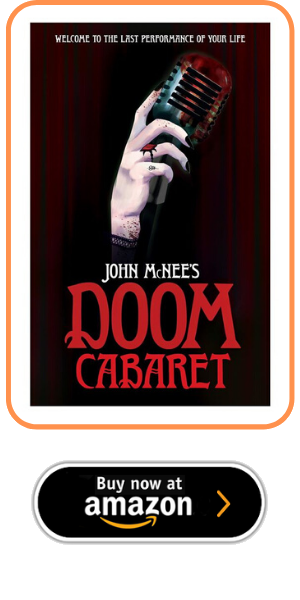|
To celebrate the hallowed day and night of Halloween, Ginger Nuts of Horror is honoured to host an exclusive short story "Where We Will Never Be" by George Daniel Lea. George has been one of the most prolific contributors to the website, with some of the finest articles on horror I have had the pleasure of reading, erudite, elegant, insightful, and fascinating are just some of the words that spring to mind to describe his writing. Where We Will never Be will feature in George's upcoming collection of short stories titled Essential Atrocities, if his previous collection / mixed media book Born in Blood (click here for our review) is anything to go by this will be a must read recommendation from us. George has this to say about about the collection and the short story featured here: At the beginning of this year, caught up in a state of mouldering depression and anxiety at not only my own future, but that of our civilisations, our species, I decided to throw myself into creative work. The initial project began as a challenge to write a short story a day for my blog over at strangeplaygrounds.com, which lasted from January 1st of 2018 until my birthday on February 8th. Realising that, not only could I keep up with that work pace but that it provided both distraction from and expressions for the pollution in my mind, I decided to continue by producing the first draft of a short story collection every month until the end of the year. Essential Atrocities is the first of those collections to be completed, and was collated under the over-arching idea that, much as we try to insulate ourselves against atrocity, experiences that wound and traumatise us, sometimes, they are essential to our development, to not making us who we are, but allowing us to transcend that very notion. An uncomfortable concept that I sincerely hope makes for uncomfortable reading. Where We Will Never Be Synopsis An infection that may or may not be real, a parasite that Doctors deny, that no one else can see. With nothing and no one to help him, Kevin Yentson descends into despair, beginning to doubt his own sanity. That is, until a young boy in his junior school class erupts into hysterics, the only one who sees as he does, who confirms his affliction. Drawn into mysteries far beyond his apparent disease, Yentson finds his life disintegrating around him, the creature invading his body, that his morbid obsession with almost eclipses everything else, far more than a mere parasite. Where We Will Never Be |
Archives
April 2023
|
















































 RSS Feed
RSS Feed

